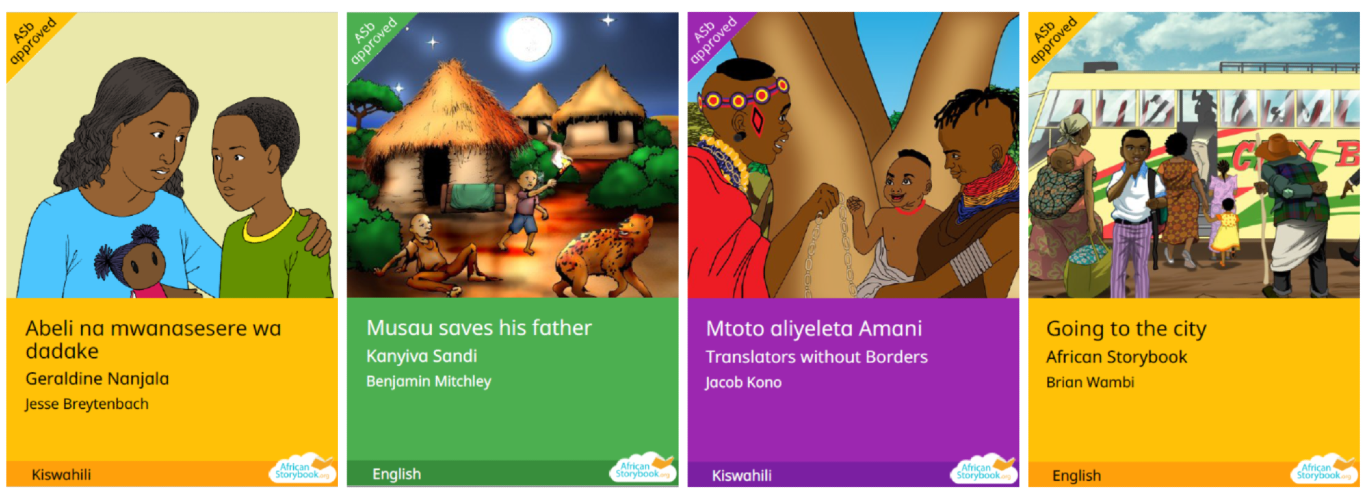African Storybook boosts literacy outcomes in Ndege Primary School
Geraldine Nanjala
When the school term began in January 2021, library lessons did not take off well because teachers used those lessons to make up for time lost during the pandemic lockdowns. Class 8 (Exam class) language teachers at my school decided to use the time to build learners’ skills in composition/insha (composition in Kiswahili), first by focusing their attention on reading well-written stories. The following storybooks were especially popular with learners:

Follow the links to read these storybooks:
Abeli na mwanasesere wa dadake; Musau saves his father; Mtoto aliyeleta Amani; Going to the city
Others include:
- Tarik and his friend
- Unlucky day
- Which work is the most important?
- Siku niliyopotea sokoni
- Barua kwa mama
- Kwenda Jijini
Learners mostly read the books on their own, but we sometimes read aloud and explained the content. We then asked them to write a composition/insha. This approach had a very positive effect on learners’ performance. For example, the teacher of English and I believe that it contributed to the school’s improved scores in English and Kiswahili in the 2020 Kenya Certificate of Primary Education (KCPE). The mean scores of English 55% and Kiswahili 54% were an improvement over the 2019 mean scores of 50% and 45% respectively. We believe that this impact can be traced back to 2018, when our learners began accessing the African Storybooks on the school tablets.
Seeing how our approach has helped learners in our school to improve, I shared the link to the African Storybook website with 44 Kiswahili teachers so they could apply our methods. They embraced the idea and promised to try when the schools resume. The new bulk download feature on the website which enables up to 15 storybooks to be downloaded at once, is very useful. We have managed to download 60 storybooks. We use the teacher’s laptop to project on the classroom wall for learners to read as a class. Bulk downloading is a fast and efficient method to use to access the storybooks.
.png)
Left: Using the ASb bulk download. Right: Children reading from school tablets
Geraldine Nanjala is a literacy and language teacher at Ndege School, a public primary school in the Nakuru County, Kenya. She has been using storybooks in English and Kiswahili to help learners improve their writing composition for both languages.